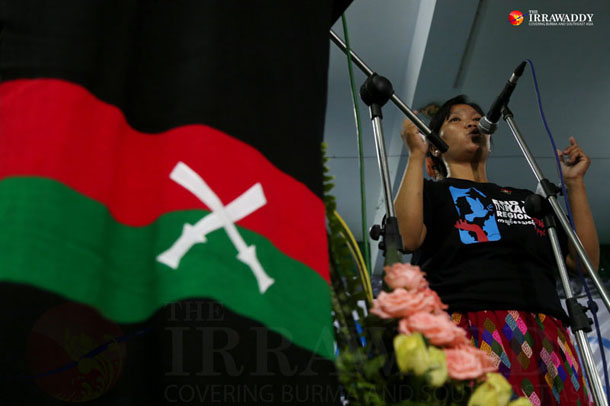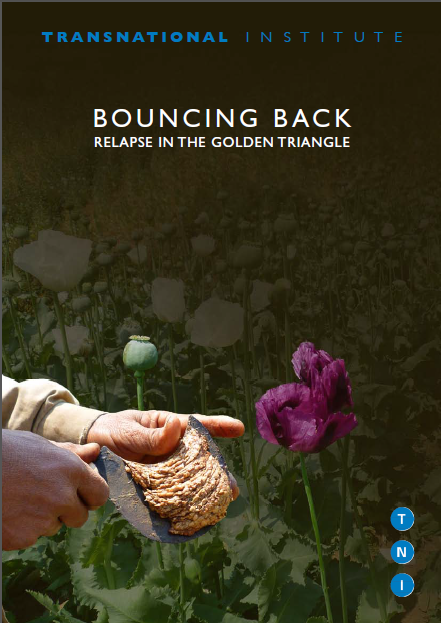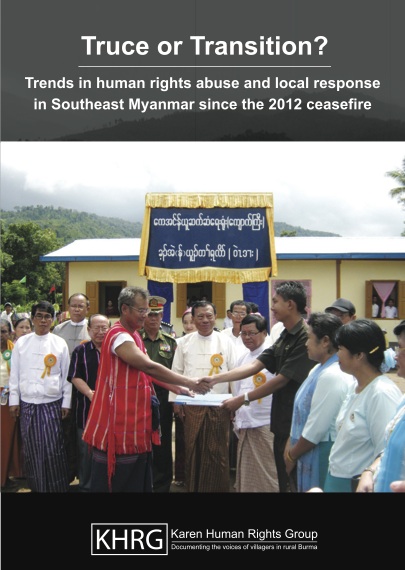Posts Tagged ‘Human Rights Violations’ (349 found)
Three Years of Suffering for the Kachin People, How Much Longer?
 As we pass the marking of the third year of the conflict in Kachin and northern Shan State between the Kachin Independence Army (KIA) and the Burma Army, it is difficult not feel pessimistic. A report released by Fortify Rights, a non-profit human rights organization based in Southeast Asia, highlights the continuing torture of Kachin civilians by Burmese security forces, while Kachin Women’s Association Thailand (KWAT) expressed their concern at the increasing offensives on KIA positions. Peace talks have occurred sporadically in an attempt to resolves the conflict, but still, all we see is the continuing persecution of Kachin communities.
As we pass the marking of the third year of the conflict in Kachin and northern Shan State between the Kachin Independence Army (KIA) and the Burma Army, it is difficult not feel pessimistic. A report released by Fortify Rights, a non-profit human rights organization based in Southeast Asia, highlights the continuing torture of Kachin civilians by Burmese security forces, while Kachin Women’s Association Thailand (KWAT) expressed their concern at the increasing offensives on KIA positions. Peace talks have occurred sporadically in an attempt to resolves the conflict, but still, all we see is the continuing persecution of Kachin communities.
The Fortify Rights report, ‘Myanmar: End Wartime Torture in Kachin State and Northern Shan State’ demonstrates how torture, both physical and mental, has been systemically inflicted upon Kachin civilians thought to be associated with the KIA. Fortify Rights believes that this constitutes war crimes and crimes against humanity. The perpetrators include not just the Burma Army, but also military intelligence and the police force. Beatings during interrogation, cutting off blood circulation, deprivation of food, drink, and sleep, sexual assault, and stabbings among other methods were all documented. Mental torture was also used, such as forcing prisoners to dig graves and telling them it is their own, having to drink from pools of their own blood and being put in execution style positions. This report comes just a few months after the Women’s League of Burma released, ‘Same Patterns, Same Impunity’ that exposes the systematic use of rape and sexual assault as a weapon of war by the Burma Army in ethnic areas […]
• • •Thai Industry Commits to Support Bail Out
On Wed. 18th June at 9am, British migrant rights activist Andy Hall,
who campaigns to improve conditions for migrant workers in Thailand,
will be escorted from Bangna police station, Bangna district, Bangkok
by police officers to meet officials at the Prakanong Public Prosecutors Office, Bangkok to learn the public prosecutor?s decision whether the latest criminal charges filed against him by Natural Fruit Co. Ltd. will be ordered prosecuted at Prakanong district court […]
Members of ASEAN Intergovernmental Commission on Human Rights, ACT NOW Against Increasing Human Rights Violations in the Region!
The Asian Federation Against Involuntary Disappearances (AFAD) calls on the ASEAN Intergovernmental Commission on Human Rights (AICHR) to ACT NOW against increasing human rights violations in the region […]
• • •Myanmar: Three Years on, Conflict Continues in Kachin State
Three years after the Myanmar armed forces resumed offensive military operations in Kachin state, Amnesty International joins human rights defenders and civil society organizations to call for an immediate end to violations of international humanitarian law and human rights law. The continued fighting and reports of crimes under international law and human rights violations allegedly committed by the Myanmar Army raise serious questions about commitment to human rights reforms in the country and threaten ongoing efforts to negotiate a nationwide ceasefire […]
• • •Opium Cultivation Bounces Back: TNI Report Shows Dramatic Failure of ASEAN’s ‘Drug Free’ Strategy
 Bouncing Back – Relapse in the Golden Triangle, a new in-depth report by the Transnational Institute (TNI) launched in Yangon, Burma/Myanmar, on Monday June 2, highlights the profound changes in the illicit drugs market in the Golden Triangle – Burma, Thailand and Laos – and neighbouring India and China over the past five years. The report outlines the causes and consequences of a doubling of opium cultivation after a decade of decline. It argues that repressive drug control policies have failed to reduce consumption and production and instead led to more dangerous forms of drug use, growing human rights abuses and impoverishment. It finally highlights the workable alternatives that offer a better prospect for addressing drug-related problems in Southeast Asia. […]
Bouncing Back – Relapse in the Golden Triangle, a new in-depth report by the Transnational Institute (TNI) launched in Yangon, Burma/Myanmar, on Monday June 2, highlights the profound changes in the illicit drugs market in the Golden Triangle – Burma, Thailand and Laos – and neighbouring India and China over the past five years. The report outlines the causes and consequences of a doubling of opium cultivation after a decade of decline. It argues that repressive drug control policies have failed to reduce consumption and production and instead led to more dangerous forms of drug use, growing human rights abuses and impoverishment. It finally highlights the workable alternatives that offer a better prospect for addressing drug-related problems in Southeast Asia. […]
Truce or Transition? Trends in Human Rights Abuse and Local Response in Southeast Myanmar Since the 2012 Ceasefire
In January 2012, the Myanmar government and the Karen National Union (KNU) signed a preliminary ceasefire agreement, bringing to a halt what is often referred to as the world’s longest-running civil war. This conflict engendered severe human rights abuse of civilians at the hands of a range of armed actors, primarily at those of the Myanmar Armed Forces (Tatmadaw). The ceasefire and other recent political developments in Myanmar have altered the ways in which human rights abuse is experienced by Karen people in the Southeast, and transformed the context within which these abuses can be addressed. This report aims to demonstrate how trends in human rights abuse have changed during the post-ceasefire period […]
• • •Experts Urge Transparency in Burma’s Businesses
Most companies operating in Burma and Southeast Asia fail to meet international standards for transparency, according to a survey by the Business and Human Rights Resource Centre (BHRRC).
The London-based organisation, with offices and research fellows in 180 countries, deals with about 5,000 companies with both positive and negative images on human rights. One of its main goals is to obtain responses about misconduct allegations made by civil-society groups […]
• •BURMA: Letter to President Obama on Continuing National Emergency
Dear President Obama,
Our organizations urge you to continue the national emergency with respect to Burma. Since May 20, 2013, the Burmese government has failed to substantively address any of the concerns that informed the renewal of Executive Order 13619 […]
• • •United States Commission on International Religious Freedom’s 2014 Annual Report
Political reforms in Burma have not improved legal protections for religious freedom and have done little to curtail anti-Muslim violence, incitement and discrim¬ination, particularly targeting the Rohingya Muslim minority. Police failed to intervene effectively and the government has taken inadequate steps to address the underlying causes of sectarian violence or hold individ¬uals fully accountable. State-sponsored discrimination and state-condoned violence against Rohingya and Kaman ethnic Muslim minorities also continued, and ethnic minority Christians faced serious abuses during recent military incursions in Kachin state. Based on these systematic, egregious, ongoing violations, USCIRF continues to recommend that Burma be designated as a “country of particular concern,” or CPC, in 2014. The State Department has designated Burma a CPC since 1999 […]
• • •Statement No. (2/2014) Investigation of the Incident at the Ducheeratan Village
1. A team from the Myanmar National Human Rights Commission (MNHRC) comprising the Secretary and three members visited Sittwe and Maung Taw Township and made a tour of the Ducheeratan village tract from 30 January to 3 February 2014, in order to investigate the news reports on the incident that had occurred at Ducheeratan middle village […]
• • •









 All posts
All posts